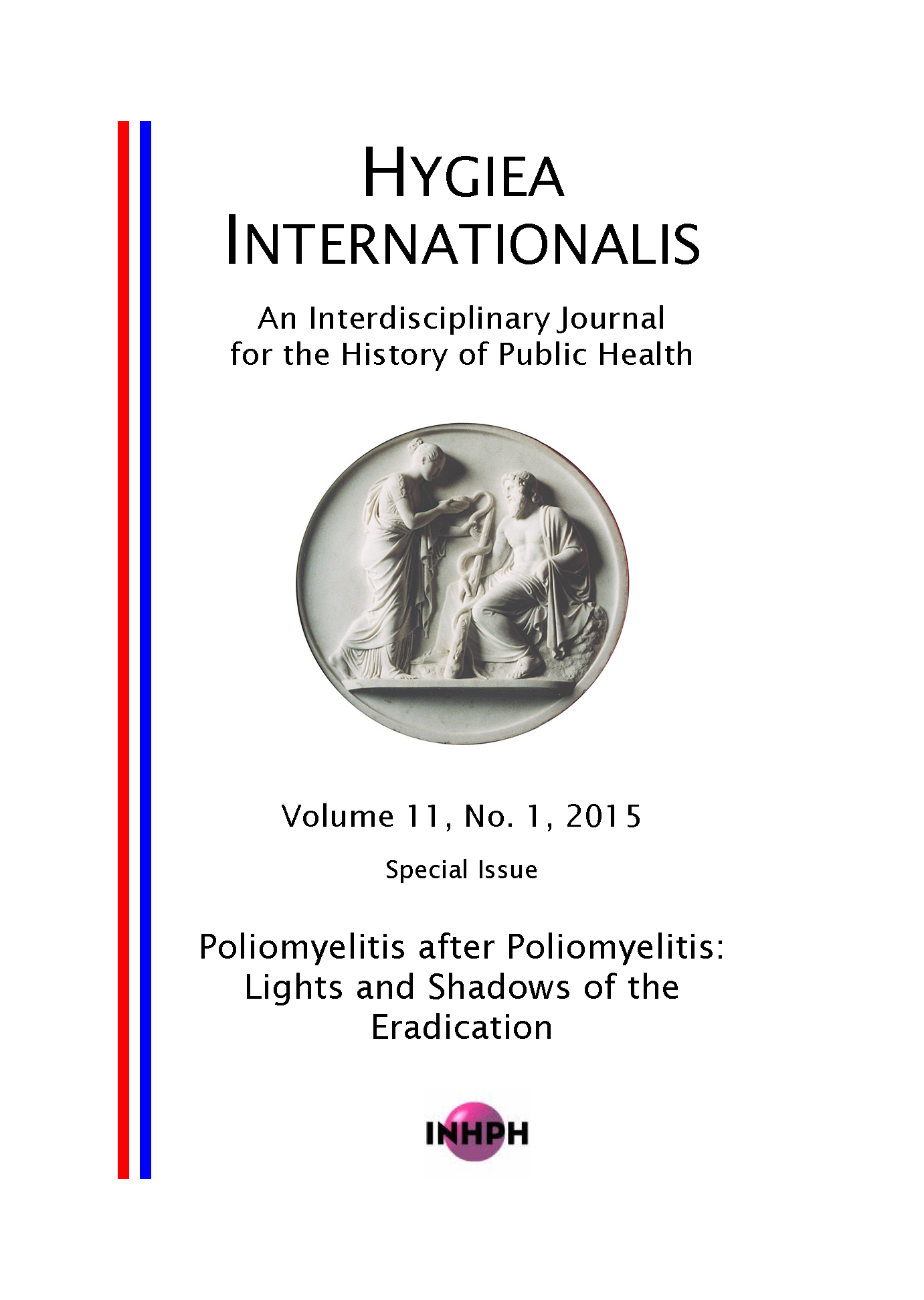Denial, Oblivion and New Fears: Poliomyelitis and the Post-Polio Syndrome in the Spanish and Portuguese Press (1995-2009)
DOI:
https://doi.org/10.3384/hygiea.1403-8668.1511191Keywords:
Poliomyelitis, post-polio syndrome, disability, eradication, anti-vaccine movements, press, content analysis, agenda-settingAbstract
Polio disappeared in the Iberian Peninsula at the end of the eighties. That promoted the disappearance in the media’s agenda and the oblivion of people living with polio’s sequaleae. The consequence was that polio was forgotten in the public agenda. We explore the change in the social perception of polio in the Iberian Peninsula through content analysis (agenda setting and framing) of four newspapers with a large circulation (the Spanish El País and El Mundo, and the Portuguese Jornal de Notícias and Público), between 1995 and 2009. Polio was linked to poverty and ignorance in distant countries, susceptible to cooperation activities. It was only considered an issue when it was perceived as a threat to the West, linked to health crises or giving it a metaphorical sense. Thus, post-polio syndrome was invisible in the Portuguese case and weakly represented in Spain by the patient associations.Downloads
Published
2015-06-30
How to Cite
Rodriguez-Sánchez, J. A., & Guerra-Santos, I. (2015). Denial, Oblivion and New Fears: Poliomyelitis and the Post-Polio Syndrome in the Spanish and Portuguese Press (1995-2009). Hygiea Internationalis: An Interdisciplinary Journal for the History of Public Health, 11(1), 93–129. https://doi.org/10.3384/hygiea.1403-8668.1511191
Issue
Section
Articles
License
Copyright (c) 2015 the Author(s)

This work is licensed under a Creative Commons Attribution-NonCommercial 4.0 International License.






